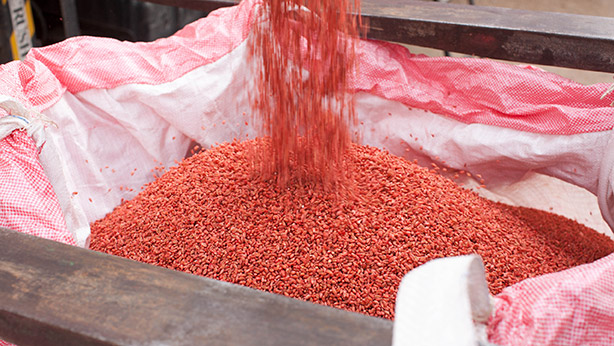Global effort addresses microplastics in seed treatments
 © Tim Scrivener
© Tim Scrivener Legislation restricting the use of microplastics in seed treatments has been introduced to the EU to mitigate environmental pollution risks, which could prompt other nations – including the UK – to follow suit.
The EU legislation came to light in October 2023, and restricts the use of intentionally added microplastics to seed treatments.
The legislation allows a transition period ranging from five to eight years depending on the regulatory state of the product applied.
See also: Global organisations sign agreement to fight illegal seed practices
Addressing the issue at the International Seed Federation (ISF) World Seed Congress held in the Netherlands, the ISF acknowledged the concerns surrounding microplastics.
“The industry is actively addressing these issues through ongoing research for innovative, environmentally friendly alternatives.
“The commitment from the international seed community to provide microplastic-free products reflects our collective dedication to responsible practices.”
What are microplastics?
Incotec’s global regulatory manager, Rob Pronk, sheds light on the significance of seed treatments and the issues of microplastics.
“Microplastics are tiny, synthetic polymers [less than 5mm in diameter] that are insoluble in water and are slow to degrade, which has prompted questions around environmental and health concerns,” he says.
These polymers reduce the risk of dust and seed treatment products reaching non-target organisms, increasing safety for both factory workers and farmers.
Although currently estimated at only 1% of the total microplastics released, the seed sector is ambitiously aiming for zero contributions, as the industry looks to play its part in combating global microplastic pollution.
Robert Gaffney, BASF director for global marketing and seed treatments manager notes the primary function of polymers in seed treatments is to adhere the product to the seed surface.
“Legislation is now law in the EU since October 2023, which gives non-active products a five year transition period to go microplastic-free, and eight years for plant registered plant protection products to go microplastic-free.
Time to transition
Robert continues that other global regions are evaluating the latest legislation and contemplating similar measures to combat microplastic concerns.
“Although there’s no imminent legislation on the horizon elsewhere, the US or South America, for example, might look at utilising EU legislation as part of a global effort to combat microplastic pollution,” he says.
Bert Compaan, Research Manager Seed Pathology at Bejo Zaden, stresses the importance of a transition period to allow the industry time to develop and validate alternative seed treatments and its associated technology.
“Seed-applied polymers free of microplastics are becoming more available, but this takes time as companies transition,” he says.

